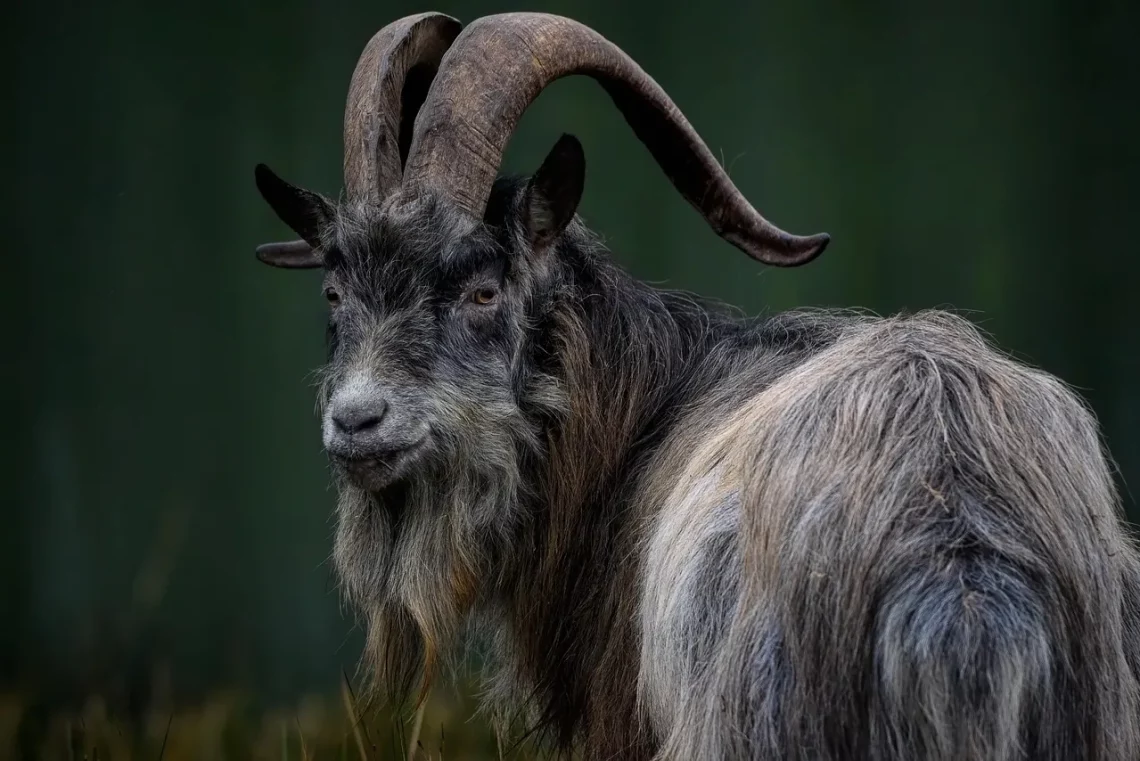
Can Goats Eat Lettuce? Understanding Their Dietary Needs
Goats are fascinating creatures that have captured the hearts of farmers and animal lovers alike. Known for their playful demeanor and curious nature, these animals are often seen grazing in fields, climbing rocky terrains, and even nibbling on various plants. However, when it comes to their dietary needs, goats have specific requirements that must be met for them to thrive. Their diet largely consists of fibrous materials, such as grasses and hay, supplemented by various other nutrients.
Lettuce is one of the many vegetables that people often wonder if they can include in a goat’s diet. While goats are known for their ability to munch on just about anything, not all foods are created equal, and some can be harmful if given in excess. Understanding what goats can and cannot eat is crucial for any goat owner or enthusiast. The right diet not only prevents health issues but also promotes overall well-being and longevity. This article aims to delve deeper into the dietary preferences of goats, specifically examining the role of lettuce in their nutrition and how it fits into a balanced diet.
Nutritional Needs of Goats
Goats are ruminants, which means they have a unique digestive system that allows them to break down fibrous plant material effectively. Their diet primarily consists of roughage, such as hay, grass, and shrubs. This high-fiber diet is essential for maintaining their digestive health and ensuring that they receive the necessary nutrients.
In general, goats require a balanced diet that includes proteins, carbohydrates, vitamins, and minerals. The protein content is crucial for their growth, reproduction, and overall health. Young goats, in particular, have higher protein needs as they grow rapidly. Adult goats, on the other hand, can maintain their health with a more moderate protein intake.
Carbohydrates, mainly derived from fibrous plants, provide the energy goats need for daily activities. A diet rich in carbohydrates also supports their rumen fermentation, which is vital for nutrient absorption. Vitamins and minerals, such as calcium, phosphorus, and magnesium, play essential roles in bone development and other metabolic functions.
It’s important for goat owners to provide a diverse diet that includes not only roughage but also supplements to meet these nutritional needs. This can include commercial goat feed, minerals, and occasional treats such as fruits and vegetables. However, moderation is key when introducing new foods, as sudden dietary changes can lead to digestive upset.
Can Goats Safely Eat Lettuce?
When considering whether goats can eat lettuce, it’s essential to understand the different types of lettuce and their nutritional content. Lettuce, particularly varieties like romaine, is low in calories and high in water content, making it a refreshing treat for goats. However, while goats can eat lettuce in moderation, it should not replace their primary diet of hay and grass.
Romaine lettuce, for example, contains some vitamins and minerals, including vitamin A and potassium. These nutrients can be beneficial, but the overall nutritional value is relatively low compared to other leafy greens and vegetables. Iceberg lettuce, on the other hand, is often discouraged because it has minimal nutritional value and a high water content, which can lead to digestive upset if consumed in large quantities.
It’s also important to note that while lettuce is safe for goats, it should only be given as an occasional treat. Too much lettuce can lead to diarrhea or other gastrointestinal issues due to its high water content and low fiber. Goats thrive on a diet rich in fibrous plants, and introducing too many “soft” foods can disrupt their digestive system.
As a general rule, any new food should be introduced gradually into a goat’s diet. Start with small amounts of lettuce and observe how the goat reacts. If there are no adverse effects, it can be offered occasionally as a treat.
Other Vegetables and Greens for Goats
While lettuce may be a popular choice, several other vegetables and greens can be offered to goats to diversify their diet. Leafy greens, such as kale, collard greens, and spinach, are excellent options that provide more nutrients than lettuce. These greens are rich in vitamins and minerals that can contribute to the overall health of goats.
Carrots and beets are also great alternatives that goats enjoy. These root vegetables are higher in sugars, so they should be given in moderation. They can serve as a tasty treat or a training reward, but excessive consumption may lead to digestive issues or obesity.
Herbs, such as basil, parsley, and mint, can also be included in a goat’s diet. Goats are known for their love of variety, and offering different herbs can stimulate their appetite and provide additional health benefits. Many herbs have medicinal properties that can aid in digestion and overall health.
However, caution should be exercised with certain vegetables. For example, nightshade vegetables like tomatoes and potatoes should be avoided, as they can be toxic to goats. Always research and ensure that any new food introduced is safe for goats.
Overall, a goat’s diet should consist of high-quality forage, supplemented with a variety of vegetables and greens. This balanced approach ensures that they receive the necessary nutrients while keeping their digestive system healthy.
Conclusion: Crafting a Balanced Diet for Your Goats
Creating a balanced diet for goats involves understanding their nutritional needs and knowing which foods are beneficial. While goats can eat lettuce, it should only be a small part of a much larger diet. The primary focus should remain on fibrous materials such as hay and grass, supplemented with a variety of other safe vegetables and greens.
Regularly monitoring a goat’s health and dietary habits is crucial. If you notice any signs of digestive distress or changes in behavior, it may be necessary to adjust their diet. Consulting with a veterinarian or a livestock nutritionist can provide valuable insight into tailoring a diet that meets your goats’ specific needs.
In summary, goats are adaptable eaters but require a carefully balanced diet to thrive. By understanding their dietary preferences and restrictions, goat owners can ensure that these charming animals lead healthy and happy lives.
**Disclaimer**: This article is for informational purposes only and should not be considered medical advice. For any health concerns regarding your goats, please consult a qualified veterinarian.




